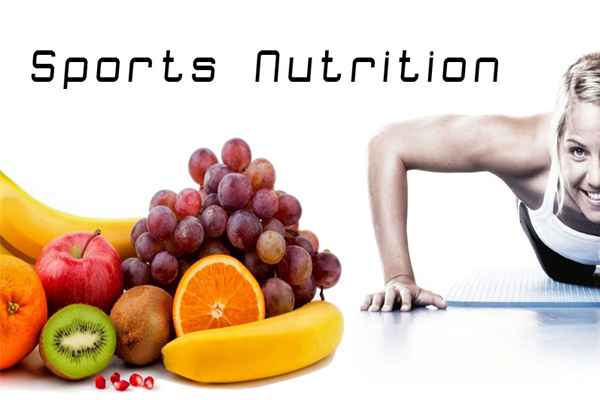Sports Nutrition Fundamentals Explained
Sports Nutrition Fundamentals Explained
Blog Article
The Only Guide to Sports Nutrition
Table of ContentsFascination About Sports NutritionThe Best Guide To Sports NutritionThe 10-Second Trick For Sports NutritionUnknown Facts About Sports Nutrition
Hydration status is a vital area of sporting activities nourishment that can make a difference in efficiency. When engaging in continual high intensity workout, you require to renew fluids and electrolytes to prevent moderate to potentially serious dehydration.Every extra pound (0.45 kg) lost equates to 16 oz (0.5 L) of liquid loss. You should take in the equal quantity of fluid to rehydrate before the following training session. It's also essential to restore electrolytes throughout and after extended extreme exercise to avoid dehydration.
That claimed, taking into consideration that professional athletes typically have greater dietary requirements than the general populace, supplementation can be used to load in any type of gaps in the diet regimen. Some people pick to include protein powder to their oats to enhance their healthy protein content a little bit. Carb supplements might help receive your energy degrees, especially if you engage in endurance sporting activities lasting longer than 1 hour.
Several long-distance endurance athletes will certainly intend to consume 1 carb power gel having 25 g of carbs every 3045 minutes throughout a workout session longer than 1 hour. Sports drinks likewise usually include sufficient carbohydrates to keep energy degrees, but some athletes choose gels to stop excessive fluid intake throughout training or events, as this may result in digestive distress.
Indicators on Sports Nutrition You Should Know
In your body, beta-alanine serves as a structure block for carnosine, a compound accountable for assisting to lower the acidic setting within functioning muscle mass during high strength workout. This might help professional athletes such as brief- to medium-distance runners and swimmers.
Below are 3 of the top sports nourishment misconceptions and what the truths really claim. While protein intake is a vital consider getting muscle, merely supplementing with protein will not trigger any substantial muscle mass gains. To promote remarkable modifications in muscle dimension, you need to regularly execute resistance training for a prolonged amount of time while making certain your diet gets on factor.
One more common myth in sporting activities nutrition is that eating close to going to bed will certainly trigger added special info fat gain. This is based on the presumption that because you're resting, your body is melting fewer calories, so any kind of food you eat will be saved as fat. While it's true that your body burns fewer calories at remainder, this doesn't indicate the food will instantly be stored as fat.
Sporting activity nutrition is the branch of and concentrated on individuals that practice extreme or endurance sporting activities. Depending upon the last objectives of the sport and the training, will certainly stress different foods and diet plans. is essential because the nutritional requirements of a professional athlete are different from those required by a regular individual.
The 6-Second Trick For Sports Nutrition

is one of the factors that influence how well a professional athlete executes, in addition to their hereditary make-up and the go now training they do. The foods included in serve three basic objectives: Giving power Supplying issue for strengthening and repairing cells Keeping and controling the metabolic process There is no single for athletes; the relies on the details needs of each sporting activity and the type of body of the athlete.
Mix it up Consume a diverse and healthy diet plan that supplies the right quantity of energy and important nutrients. Fuel right Pick a selection of food, consisting of foods that consist of carbohydrates, based on the quantity of exercise you are doing and vary your consumption appropriately. Pursue five Eat at the very least five portions of vegetables and fruit a day; fresh, frozen, dried out and canned all matter.
Protein should preferably be evenly dispersed every three to 4 hours across the day. Researches show that the enhancement of 15-25g of protein to a post-workout meal or treat can boost glycogen storage space, decrease muscular tissue discomfort and advertise muscle mass repair. This can be any type of time in the 24 hours after your exercise, although you may see decreased results the longer you leave it.
Some Known Facts About Sports Nutrition.

Professional athletes interested in using a supplement ought to get in touch with an accredited sports dietitian to ensure they use the supplements securely and appropriately. Training volume and intensity can differ from everyday and week-to-week, along with your competitors timetable.

Report this page